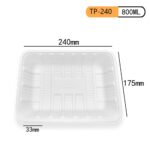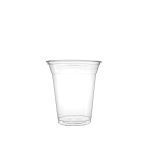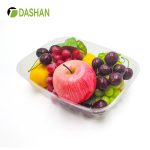Introduction
Walk into any coffee shop today—from global chains like Starbucks and Costa Coffee to your local independent café—and you’ll likely notice a shift: your cold brew, iced latte, or smoothie is now served in a clear, sturdy cup labeled as PET. This change isn’t coincidental. It reflects a broader transformation in the foodservice industry, where businesses are moving away from conventional single-use plastics and adopting more sustainable alternatives.
But why PET Cups? And why now? The answers lie in a mix of environmental responsibility, consumer expectations, regulatory pressures, and brand strategies. Let’s dive into why PET Cups are becoming the global standard—and why companies like DASHAN are at the forefront of this change.
1. What Are PET Cups?
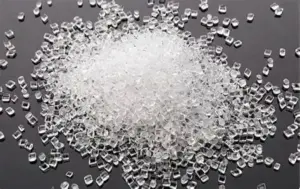
PET stands for Polyethylene Terephthalate, a type of polyester commonly used in food-grade packaging. Unlike traditional plastics (such as polystyrene), PET is:
-
Crystal clear, enhancing product visibility.
-
Strong and lightweight, making it ideal for busy coffee shops.
-
100% recyclable, fitting into circular economy models.
-
Globally recognized as safe, approved by FDA and EFSA for direct food contact.
In short, PET combines performance, sustainability, and safety—the trifecta coffee shops need.
2. Why Coffee Shops Prefer PET Cups
a) Superior Clarity and Presentation
Coffee culture today is not just about taste—it’s about aesthetics. A beautifully layered iced latte or fruit smoothie deserves a crystal-clear cup that doubles as a marketing tool. PET cups allow coffee shops to showcase their beverages in the best possible light.
b) Recyclability and Sustainability
Governments worldwide are banning or taxing single-use plastics. PET Cups, being widely recyclable, offer businesses a way to stay compliant and environmentally responsible without sacrificing quality.
c) Cost Efficiency
Compared with biodegradable alternatives like PLA, PET often provides a better balance between affordability and recyclability—crucial for coffee shops that operate on tight margins.
d) Consumer Perception
According to Deloitte’s 2024 Sustainable Consumer Report, 65% of Gen Z and Millennials prefer brands that actively reduce plastic waste. Serving drinks in recyclable PET Cups signals to customers that a coffee shop cares about the environment.
3. Global Case Studies: Coffee Shops Leading the PET Cup Transition
The adoption of PET Cups is not limited to a single region—it’s a global movement driven by both multinational chains and independent coffee businesses. Let’s look at some notable examples:
Starbucks: Scaling Sustainability Globally
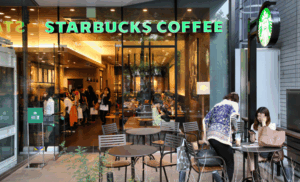
Starbucks has pledged to reduce its single-use plastic footprint as part of its 2030 sustainability goals. In North America and parts of Asia, the brand has rolled out 100% recyclable PET cold cups. These cups are now integrated into local recycling systems, ensuring that customers can dispose of them responsibly. By scaling PET adoption across thousands of outlets, Starbucks demonstrates how a multinational chain can influence consumer behavior at a massive scale.
Costa Coffee: Closing the Loop
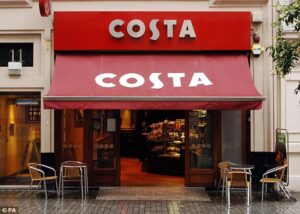
Costa Coffee, one of Europe’s largest coffee chains, has partnered with recycling initiatives to ensure PET Cups are collected and reused. In the UK, Costa has launched “reverse vending machines” where customers return used PET Cups, reinforcing the idea of a circular economy. This initiative helps not only reduce waste but also educates consumers about the value of PET recyclability.
McCafé (McDonald’s Coffee Brand): Consistency Across Formats
McCafé outlets in multiple countries now offer PET Cups for cold beverages. Unlike polystyrene or paper alternatives, PET Cups provide a consistent look and feel across diverse product categories—from iced coffee to milkshakes. For a global franchise like McDonald’s, PET Cups offer a reliable packaging material that balances cost, durability, and eco-compliance.
Independent Coffee Shops: Building Eco-Conscious Identities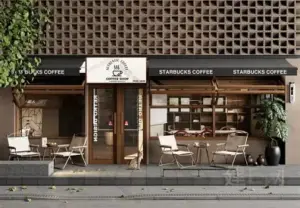
It’s not just multinational brands making the switch. Local specialty cafés across the US, Europe, and Asia are increasingly using branded PET Cups with their logos and eco-friendly messaging. For these small businesses, PET Cups serve as both functional drinkware and a marketing tool—projecting an image of responsibility and aligning with the values of eco-conscious Millennials and Gen Z customers.
Regional Trends in Asia-Pacific
Countries like Japan, South Korea, and Singapore are witnessing rapid adoption of PET Cups due to stricter government regulations on single-use plastics. In these markets, PET is favored because recycling infrastructure is already well-developed, and consumers are accustomed to proper waste segregation.
4. Expert Insights: The Authority Perspective
Dr. Emily Hart, Senior Researcher at the Ellen MacArthur Foundation, notes:
“PET Cups represent a critical step toward a circular packaging economy. Their recyclability rate is higher than most plastics, and when paired with strong collection systems, they can significantly reduce plastic waste.”
The U.S. EPA (Environmental Protection Agency) also recognizes PET as one of the most successfully recycled plastics, with recycling rates above 30% in many developed countries—far surpassing alternatives like polystyrene.
5. Why Choose DASHAN PET Cups?
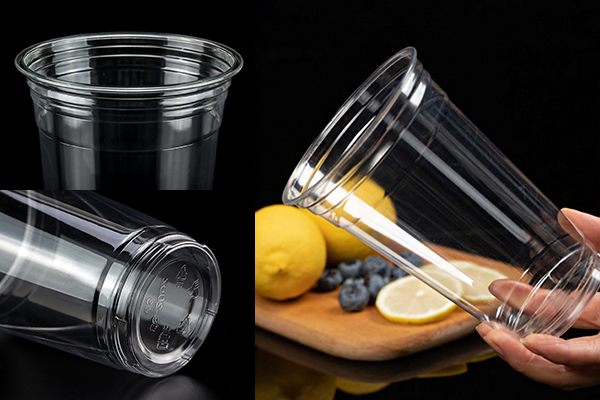
Here’s where coffee shops and distributors gain a competitive edge. DASHAN is not just another packaging supplier—it is a specialist in sustainable PET solutions.
DASHAN PET Cup Advantages:
-
✅ Food-Grade Safety: Certified by FDA, SGS, and ISO.
-
✅ Crystal-Clear Transparency: Enhances product presentation.
-
✅ Custom Branding: Logos and designs printed for stronger brand identity.
-
✅ Eco-Friendly Production: Manufactured with recyclable PET and sustainable processes.
-
✅ Global Standards Compliance: Meets strict requirements in EU, US, and Asia-Pacific markets.
-
✅ Versatile Options: Available in multiple sizes and lid types for coffee, smoothies, juices, and specialty drinks.
6. Comparison Table
| Feature | Ordinary PET Cups | DASHAN PET Cups |
|---|---|---|
| Transparency | Standard clarity | High-definition clarity |
| Certification | Basic local approvals | FDA, SGS, ISO, GRS certified |
| Customization | Limited options | Full logo & design printing |
| Sustainability | Recyclable | Recyclable + eco-friendly production |
| Strength & Durability | Average | Enhanced durability, crack-resistant |
| Market Availability | Regional supply | Global export ready |
This comparison makes it clear: DASHAN PET Cups are not just recyclable—they are a premium solution tailored for forward-thinking coffee businesses.
7. Challenges and Future Outlook
While PET Cups are a step forward, challenges remain:
-
Recycling infrastructure varies globally.
-
Consumer education on proper disposal is needed.
-
Competition from PLA and paper-based cups continues.
Yet, the future is promising. With innovations in rPET (recycled PET) and global commitments to reducing single-use plastics, PET Cups are expected to dominate the market for the next decade.
8. Conclusion
Your favorite coffee shop’s decision to switch to PET Cups is not just about packaging—it’s about sustainability, compliance, consumer trust, and brand image. For businesses, partnering with DASHAN ensures they are not only keeping pace with industry standards but also leading the way toward a greener future.
Next time you sip your iced coffee, remember: that cup is more than just a container—it’s part of a global shift toward sustainability.
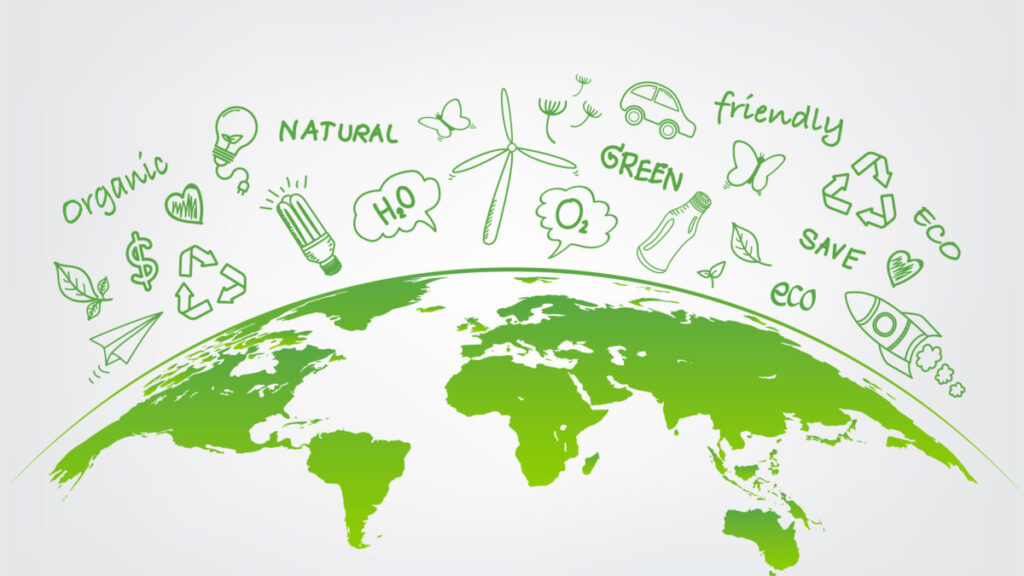
References
-
Deloitte: Sustainability has staying power
This report covers consumer attitudes and trends toward sustainable consumption, useful for supporting arguments about “consumer expectations” and “brand image.”
Link: https://www.deloitte.com/us/en/insights/environmental-social-governance/sustainable-consumption-trends.html -
Deloitte: The Sustainable Consumer (UK)
Provides data on UK consumers’ habits regarding plastic reduction and recycling, supporting claims that “consumers prefer eco-friendly packaging.”
Link: https://www.deloitte.com/uk/en/Industries/consumer/perspectives/the-sustainable-consumer.html -
Ellen MacArthur Foundation: Global Commitment 2022 – Food Insights
Focuses on recyclability of PET in food packaging and industry transition trends, suitable for supporting points about PET Cups as a replacement material.
Link: https://www.ellenmacarthurfoundation.org/global-commitment-2022-food-insights -
Ellen MacArthur Foundation: Global Commitment 2023 Progress Report
Offers updated 2023 data on packaging industry progress, including PET’s role in recyclable and reusable systems.
Link: https://content.ellenmacarthurfoundation.org/m/1b565394a67da8a5/original/The-Global-Commitment-2023-Progress-Report.pdf -
Ellen MacArthur Foundation: Plastics and the Circular Economy – Deep Dive
Explores plastics’ role and challenges in the circular economy, providing authoritative background on PET Cups in sustainable systems.
Link: https://www.ellenmacarthurfoundation.org/plastics-and-the-circular-economy-deep-dive -
WhatTheyThink: Packaging’s Sustainable Future Has to Include Plastic
Based on Ipsos and Deloitte surveys, this article highlights consumer attitudes toward single-use plastics and the future of plastics in sustainable packaging.
Link: https://whattheythink.com/news/122051-packagings-sustainable-future-has-include-plastic
❓ Frequently Asked Questions (FAQs)
1. Why are coffee shops switching to PET Cups?
Because PET Cups offer clarity, strength, and recyclability. They are safer and more eco-friendly than traditional plastics, making them a smart choice for cafés and global brands.
2. Are PET Cups really eco-friendly?
Yes. PET Cups are 100% recyclable and one of the most successfully recovered plastics worldwide, helping reduce single-use waste.
3. How do PET Cups compare to PLA cups?
PLA is compostable under industrial conditions, while PET is widely recyclable in existing systems. Coffee shops choose PET for its global recycling availability.
4. Why choose DASHAN PET Cups?
DASHAN PET Cups deliver premium clarity, certified safety (FDA, SGS, ISO), full customization, and eco-friendly production—making them stand out from standard options.
5. Can DASHAN PET Cups be recycled easily?
Yes. They are designed for mainstream recycling systems, ensuring an easy and practical solution for businesses and consumers.


